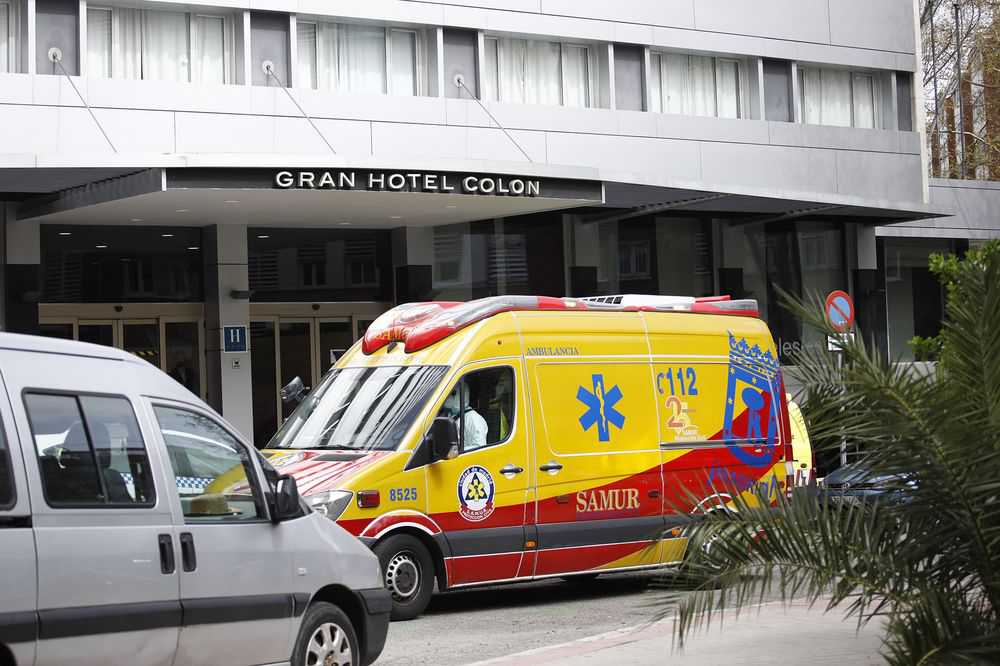Spanish Hotels Become Medical Bunkhouses in Tourism Meltdown

Collected
Before the coronavirus pandemic besieged Europe, Kike Sarasola worried about whether he was building enough hotels to capitalize on the region’s long-running tourism boom.
Such concerns have disappeared, together with the tourists.
The only guests at three of his six boutique hotels in Madrid are doctors and nurses fighting the deadly disease. The transformation of Sarasola’s Room Mate Laura hotel and a large number of others into lodging for hospital staff reflects the way the crisis has overwhelmed the health-care sector and also brought the tourism industry to a halt.
The sudden standstill is specially notable in Spain and Italy, the epicenters of the outbreak in Europe, with an increase of than 150,000 cases and 15,000 deaths. An incredible number of visitors travel to both countries every year, fueling economic growth.
Now, lockdowns mean nearly all hotels are closed. As the virus continues to spread, there’s little prospect for an easing of restrictions on all but essential travel any moment in the future.
Popular Places
Five of the most notable ten holiday destinations are in Europe
Doctors and nurses have “arrived crying and exhausted,” said Sarasola, president of Room Mate, a chain of three dozens hotels all over the world. “Nobody thought we were likely to get these degrees of sickness and death so quickly. It’s mind boggling.”
He and other hoteliers in Spain and Italy have donated empty rooms to health-care workers. In Madrid, some are isolating themselves from loved kinds because they are concerned about contagion, and others were brought in from elsewhere to greatly help in the town, where there were the most deaths in Spain.
Sarasola supports the strict lockdown to avoid the virus, and is relying on a rapid rebound after restrictions lift, when he thinks cooped up consumers will look for sunny beaches to recover.
Others aren’t so sure. Even if there’s a boost to domestic tourism as persons remain reluctant to travel abroad, that won’t cover the losses in foreign visitors.
“For Italian hotels, it will be a summer of domestic tourism, which however will probably be worth significantly less than 50% of the full total and you will be weaker than usual, since Italians could have less money,” said Bernabo Bocca, president of lodging association Federalberghi.
Relying on Tourists
It’s an identical story in Portugal, where tourism makes up about one in every five jobs and 19% of economical output.
“Folks are being told to remain at home, this means the sector has ground to a halt,” said Francisco Calheiros, head of Portugal’s Tourism Confederation.
At stake is billions of euros in income and an incredible number of jobs.
For many Spaniards, the summertime season is their only shot each year to work consistently for several months at the same time. Economists expect a jump in Spain’s already-high unemployment rate. The magnitude of the increase will depend in large part on when tourists are able to return.
Before the spread of the virus intensified in the past fourteen days, tourism companies were hopeful that activity would get somewhat back again to normal for the all-important Easter break in April. Since that time, airports in Spain, Italy and elsewhere have shuttered almost all of their terminals, and airlines have grounded the bulk of their fleets.
Ryanair Holdings Plc, which brings an incredible number of visitors to Spain and Italy every year, doesn’t be prepared to operate flights during April and May.
Without airlines supplying customers, hotels have little opportunity to fill beds, plus some operators are thinking about closing for all of those other year, according to Carlos Cendra of Spanish travel analytics firm Mabrian Technologies.
“It’s no more about having a good high season -- it’s about saving the high season,” Cendra said.
The outlook has been further clouded by events in the U.K., an integral way to obtain travelers to southern Europe.
Its containment came later than in other Europe, which could mean the peak of the pandemic there is still weeks away, keeping Brits in the home for longer.
Beyond the immediate concerns about the coming travel season, the virus could spell structural changes for the industry. Travelers could be less willing to take part in mass gatherings like conventions, fairs, and even soccer games.
“We need to know how a number of distortions regarding mass tourism and over-tourism could be fixed,” said Lorenza Bonaccorsi, Italy’s undersecretary for tourism. “Restrictions on gatherings of men and women could last a long time.”
Tourism executives and analysts say that many persons -- particularly older travelers -- will probably remain wary of venturing abroad. Also, cash-strapped airlines may re-introduce services only slowly but surely to slowly repair their damaged balance sheets.
“When all of the bars, all of the restaurants, all of the stores, all the museums are closed -- when there’s not a single soccer game being played, what tourist activity will there be? Zero,” said Jose Luis Zoreda, executive vice president at Exceltur, a lobby group for Spain’s tourism industry. “We went from business as usual in February to no business towards the end of March.”
Source: https://www.bloomberg.com
Tags :
Previous Story
- SMEs need urgent help too
- Microsoft divests from Israeli facial-recognition tech found in...
- Trump signs $2 trillion recovery plan as US...
- Economic threats in the time of corona
- How to tune Windows 10 for laser-focused productivity
- International Tourism Arrivals Could Fall By 20-30% In...
- Knitwear factories in N’ganj closed till April 4:...
- Bangladesh imposes total lockdown over COVID-19